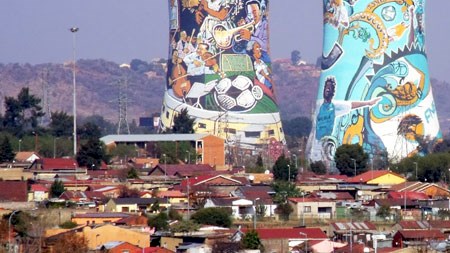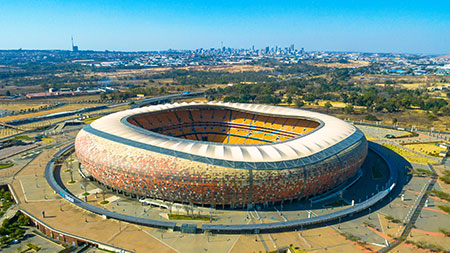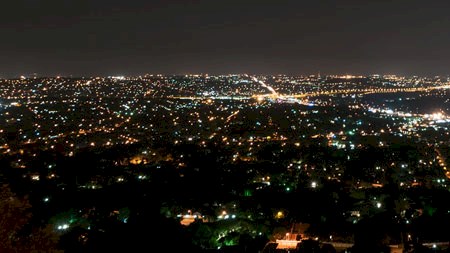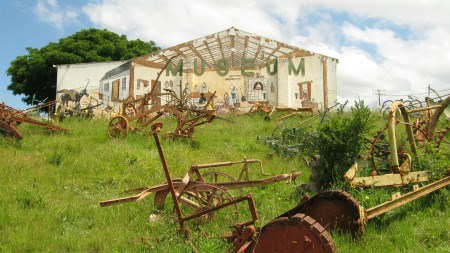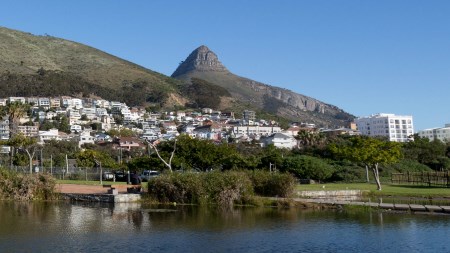History, accessibility and a unique energy are just a few reasons why Soweto’s people are proud to call it home.
Soweto is a place in South Africa like no other. Packed with history, the area was directly linked to the discovery of gold and, although it may have once been a dusty township, the development has been staggering − today it has 37 suburbs. According to Shawn Mackrell, master licensee for Seeff: Johannesburg South, Alberton and Soweto, increased house prices in Soweto are due to an influx of middle class residents, with affordable property prices and easy access to the city centre adding to the appeal.
Resident Fortune Ringane agrees, citing Soweto’s accessibility as a key reason for living there. “There are so many transport options and it’s a very convenient area to stay in,” she says. The upgraded road infrastructure and Rea Vaya, the City of Johannesburg’s new bus rapid transport system, are two such examples of this.
Home to about 40% of the total Johannesburg population, Soweto has a unique energy not found in many other places. “It’s very vibey and friendly,” says Fortune, “and there are so many entertainment options that you really don’t need to go anywhere else”. She cites the iconic FNB stadium – built for the 2010 Soccer World Cup and shaped like a calabash – as her favourite place to spend time, and she goes regularly to watch Orlando Pirates play.
Feeling hungry?
Khotso Motau grew up in Soweto and mentions Sakhumzi Restaurant and Bar as being one of the best known in the area. Opened in 2001, Sakhumzi is situated on the famous Vilakazi Street, the original home of both Nelson Mandela and Desmond Tutu, and has grown from humble beginnings to become one of the hottest spots on the tourist trail. But it’s not just for tourists. On weekends you’ll find it packed with middle-class Sowetans, all enjoying the signature buffet featuring mogodu (tripe), stews, pap, samp and other tasty dishes.
Khotso says that many former Soweto residents who now live elsewhere often return to the area on weekends. “I live in Weltevredenpark and I have friends who live in Illovo, but on weekends we all head back to Soweto because it feels like home,” he says. Dichaba Meat Lounge and Beer Garden in Orlando West is another of Khotso’s favourite places to hang out, while resident Mlungisi Taleng mentions Nambitha as being his favourite restaurant, with its soul food that includes traditional African dishes.
Looking for a bit of retail therapy?
You’ve come to the right place. Fortune names the world-class Maponya and Jabulani malls as an indication of how much the area has developed, with their extensive lists of top retailers and eating establishments.
The growth of Soweto has been rapid indeed. “Soweto no longer looks like a township – it looks more like the suburbs north of the city,” says Fortune. Development has, however, been achieved in a unique way and Khotso says Soweto has “become Westernised, but in a township way”. Mlungisi says that young, upwardly mobile people who wanted to get on the property ladder would previously move out of Soweto, but now that there are so many great property investment options in Soweto itself, they are choosing to stay.
Seeff’s Shawn Mackrell says that the same thing is happening to middle-aged buyers who originally moved out of Soweto and bought property elsewhere. “Many of them are returning and trying to get back into the property market here,” he says. “Younger buyers especially are favouring upmarket suburbs like Diepkloof extension 1 and Orlando West, where property can cost upwards of R1m.”
Kena Kekana, owner of the Rawson Property Group franchise in Soweto, says that there is now a serious shortage of homes for sale in the older parts of Soweto, such as Orlando and Dube. “Many of the existing residents in these areas don’t want to move as they’re established and have convenient access to transport and other facilities,” she says.
Whatever your budget or the area you choose to live in, it’s clear that Soweto is loved for its rich history, its accessibility to the rest of Joburg, its extensive amenities and a unique energy that exists there – all thanks to the interesting people who call it home.
Try out the following restaurants:
- Sakhumzi for traditional buffets
- Nexdor for chicken livers and butternut soup
- Nambitha for sticky wings or rump steak
- Wandie’s Place for dumplings and umqushu (samp)
- Thrive Café for sophisticated dishes and great coffee
Demand
Properties listed for sale in the Soweto region comprise approximately 3% of the total sales listings in the Johannesburg region.
Approximately 3% of the interest (views) in properties for sale in the Johannesburg region is attributable to properties listed for sale in Soweto.
Median asking prices for Soweto properties
R595,000: For a typical property (three-bedroom house)
R470,000: For a property in a complex
R410,000: For a flat or apartment
R540,000: For a house
Median monthly asking prices for Soweto rentals
R3,800: For a typical rental property (two-bedroom house)
R3,500: In a complex
R3,700: For a house
R3,900: For a flat
Property types for sale
95% Houses
2% Flats
3% Complexes
Property types for rent
40% Flats/apartments
55% Houses
5% Complexes
Buying in Soweto
The monthly bond repayment to purchase a typical property in Soweto, namely a three-bedroom apartment, with the median asking price of R595,000, is R5,546 a month over 20 years at prime of 9,5% with no deposit.
Take a tour of Soweto here:
This article originally appeared in Neighbourhood, Sunday Times.
